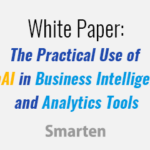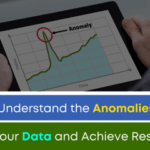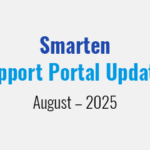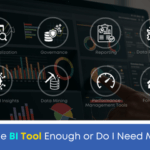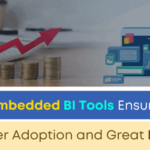Plan for Successful Mobile BI User Adoption
Today’s Mobile BI applications are more advanced, flexible and interactive and designed to respond to business user needs and expectations. These tools are more sophisticated, without requiring the skills of a data scientist, and more dynamic without requiring complex customization, and they provide more in-depth predictive analytical functionality and more interactive features. They operate seamlessly on all manner of devices without compromised displays or performance.
‘To ensure that your users will adopt the Mobile BI solution, you want to engage them.’
But access does not always ensure user adoption. When planning a Mobile BI deployment, there are factors you should include in your requirements planning and assessment to ensure you are taking user adoption into consideration.
Ease of Use and Intuitive Interface – What factors will determine the successful user adoption of these tools? Do you require that the solution be personalized to meet your business user needs or the needs of the organization? Can a business user with average skills navigate the solution and get results?
User Training – Does the prospective vendor provide support for roll-out, user training and best practices to enable user adoption and ensure Return on Investment (ROI) and Total Cost of Ownership (TCO) goals?
Collaboration – When a business user is working in a silo, or when business users do not all have access to the same information, they cannot collaborate. Creative, innovative solutions and insightful decisions only happen when a business team, management team or other department, entity or group has access to tools that allow them to share, report, create reports, and present information in a way that enables collaboration.
Data Democratization – The trend toward Citizen Data Scientists has gained in popularity. As business users transition from isolated team members into Citizen Data Scientists, they need access to sophisticated BI tools that offer clear, concise results in an easy-to-use interface, with features that enable team members to quickly gather and analyze data and share that data with the team. The days of complex BI tools managed by IT teams and Data Scientists are over! While Data Scientists work with crucial data to provide strategic direction, business users with access to self-serve BI tools can perform day-to-day analytics and find the information that will help them complete tasks and make better decisions.
Data Literacy – Today’s businesses must do more with less. That means that every resource, every skill, and every piece of knowledge must be leveraged to produce results. When business users gain literacy in data analytics, they can combine career knowledge, industry skills and business experience with data insights to produce better results. Providing the right Mobile BI tools to business users, takes the guesswork and frustration out of data analytics and ensures user adoption and improved data literacy.
Metrics to Show Usefulness in Tasks and Processes – Use what you have learned about business user frustrations, workflow, gaps, delays etc., to develop use cases and metrics that will reveal how fast things can be done, how mobile BI tools can support existing business processes, and how fact-based decision making can reduce re-work and encourage collaboration, etc.
Champions and Power Users – In every enterprise, there are people who love technology, people who are curious and love to learn, and people who are power users of devices, software and tools that will make them a) look good to their managers, b) develop a reputation as a leader, and c) grow in knowledge and skill. Use these champions and power users to find out what they know about user frustrations, and to educate them and solicit their help in user adoption. This group may represent the first roll-out and, by capturing feedback and results from that group, you can develop an approach to the user group at large.
Businesses often make technology decisions without consulting business users and they suffer the consequences. You can spend a lot of money on technology, take the time to plan for implementation and roll-out and then face resistance from business users and that resistance can often result in poor solution adoption and poor return on investment (ROI). To ensure that your users will adopt the solution, you want to engage them. Whether you are expanding the use of BI tools to include Mobile BI, or beginning your business intelligence journey, you can benefit from the feedback your users provide.
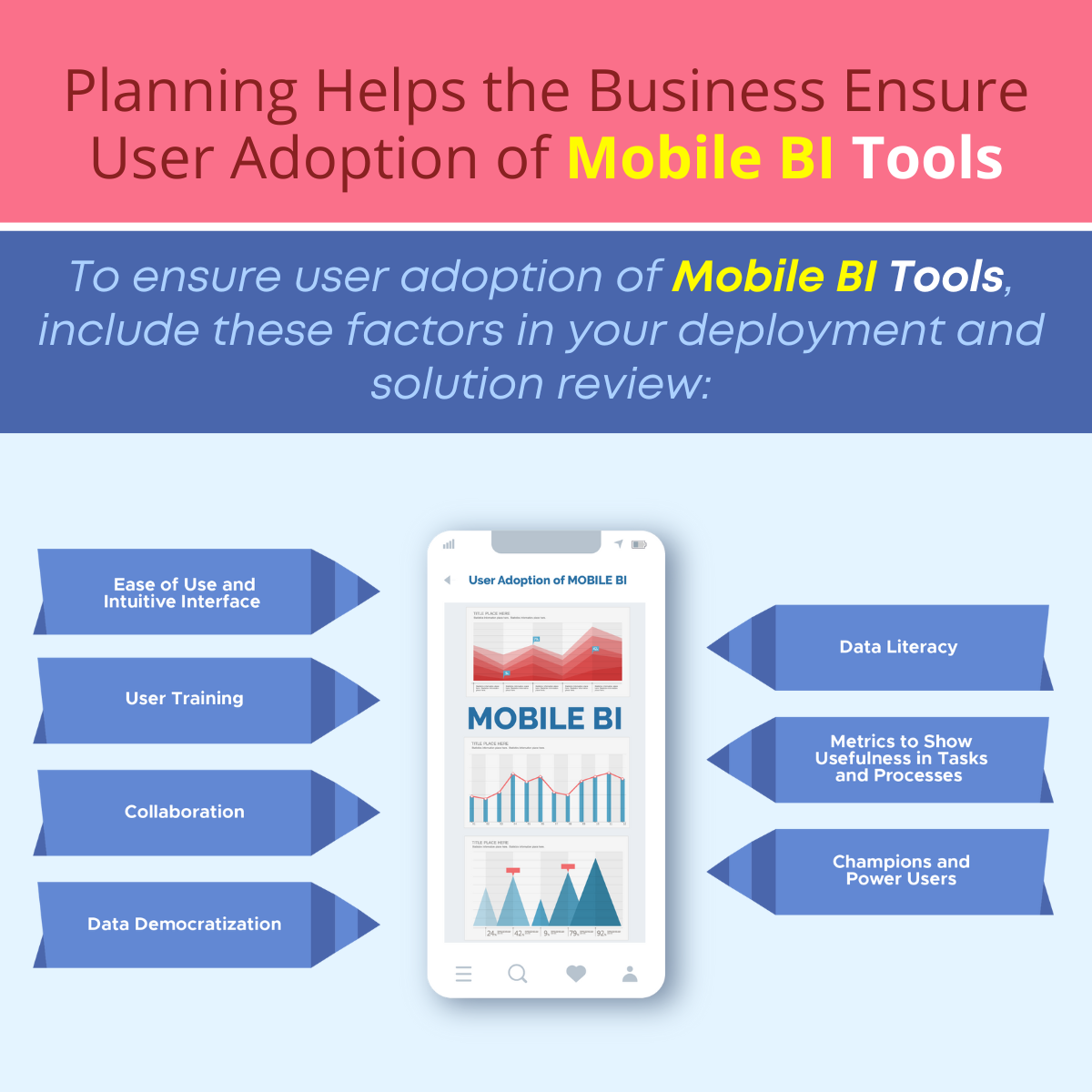
Find out what gaps, delays or issues they have in their workflow. If they are satisfied with status quo, ask them to make a wish list to make their lives even easier, and see how you can satisfy those things. With so many employees working remotely and taking on new responsibilities, it is likely that they will embrace the idea of additional access to information. Some users will see analytics as taking on new responsibilities and they will say they are already overloaded. Whenever a business wishes to change the way things are done, it will face resistance. The key is to show users how these new tools will make their lives easier, and that requires listening and research.
‘When planning a Mobile BI deployment, there are factors you should include in your requirements planning and assessment to ensure you are taking user adoption into consideration.’
There will always be a small group of team members who hold out and refuse to adopt new tools or processes but if a business can capture the majority of the team, and the team begins to use the tools to their benefit, even those hold-outs will eventually adapt and adopt!
For a comprehensive discussion of Mobile BI and related topics, read our article: ‘What Is Mobile Business Intelligence (BI), How Can It Help Your Business, And What You Should Know Before You Decide.’
Contact Us to find out how Mobile Business Intelligence solutions can help your business achieve objectives, and explore the potential of Augmented Analytics Products. Discover the features of Business Intelligence And Reporting, and Download A Free Trial Of Smarten Analytics Software.
Explore our complementary articles on Mobile BI: ‘Choose The Right Mobile BI Vendor To Ensure Success,’ ‘How Can Mobile BI Help Your Business?’ ‘Include Mobile BI Tools In Business Workflow,’ and ‘What Is Mobile Business Intelligence (BI), How Can It Help Your Business, And What You Should Know Before You Decide.’




